I sat down with Joanna Welsh, a masters powerlifter and multi-time American record holder, to chat about taking up a new sport at 39 and what’s next for her. In the four years since Welsh started competed in powerlifting, she has made quite a name for herself: The 43-year-old from Liverpool has set a number of Americans records, collected her fair share of hardware, and represented Team USA at the 2015 IPF World Powerlifting Championships.
To get her impressive resume out of the way, here are some of Welsh’s powerlifting accomplishments thus far:
- 2013 USAPL American Open Champion (Open &/or Masters)
- 2014 USAPL American Open Champion (Open &/or Masters)
- 2015 USAPL American Open Champion (Open &/or Masters)
- 2014 US National Champion (Open & Master)
- 2015 IPF World silver medalist (Masters)
- 2015 USAPL Pro Raw Challenge winner 47kg at the 2015 Arnold
- American record holder in both the 47kg and the now-retired 48kg class
Read on to find out more about the challenges and benefits of learning a new sport later on in life and why Olympic weightlifting wasn’t right for her, along with Welsh’s approach to training and recovery as both a masters athlete and busy professional.
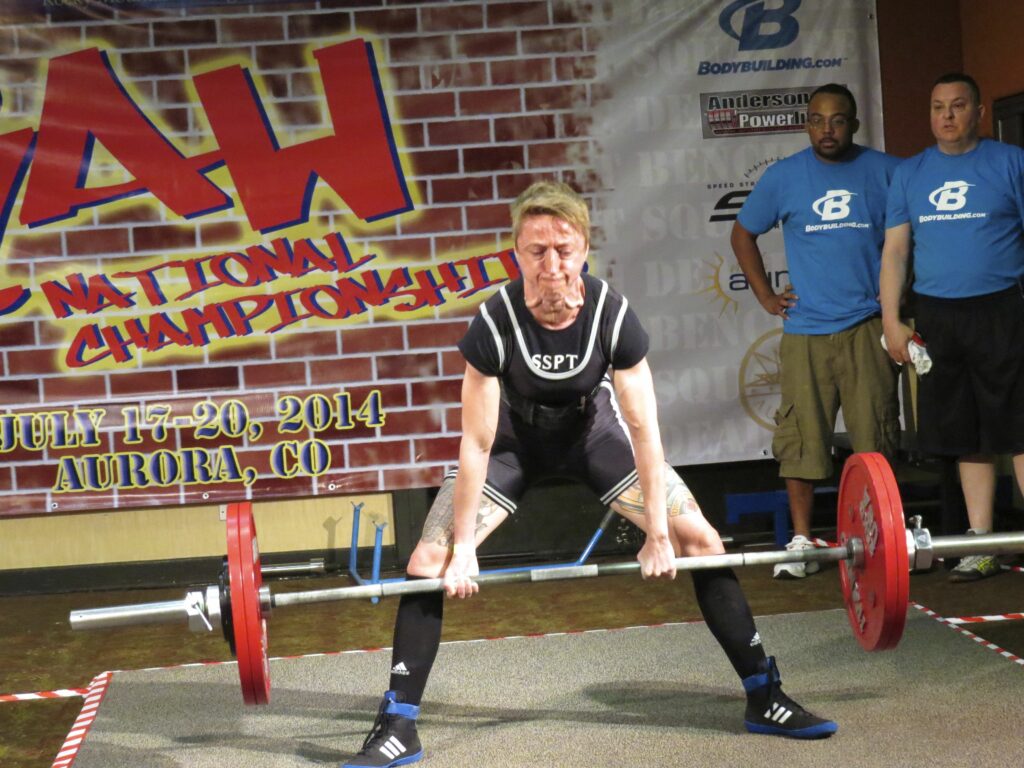
Keka: Jo, thank you so much for sitting down with me. You started powerlifting about 4 years ago, as a masters athlete. Walk me through your athletic background prior to that.
Joanna: I lived in a neighborhood that had a boxing gym, and the same guy was also a black belt in karate. I started off in martial arts, because it was a local thing, and I really enjoyed it. Once you kind of get into that individual sport mentality, then I think from then on, team sports are very difficult. Martial arts is my background. Not so much a high school, or even university athlete. I pursued the martial arts, and different versions of it all the way through university. Then when I graduated, and my career took off, I’ve always worked pretty long hours in the job that I do, and I went away from organized sports, and being able to compete, into boxing fitness classes, and martial arts based fitness classes.
Right before we left the UK was pretty much the dawn of CrossFit in the UK. I didn’t really want to compete in a combat sport anymore, and I made the transition into CrossFit. We moved to the US, and I found that CrossFit was a little bit too general for me, and that’s sort of how I got into the whole strength training specialization.
Keka: Transitioning from CrossFit into a dedicated strength sport, what made you choose powerlifting over weightlifting?
Joanna: A part of it was just my age and the capabilities of my body. Some people are so OCD, that even if they are not good at something, they can find pleasure in pursuing it, or find pleasure in pursuing small incremental improvements. I think those people are a really good fit for weightlifting.
Keka: And you are not that person.
Joanna: I am not that person. I need to see some really tangible improvements to it, and be able to set goals. Also, it turned out that on the pure strength side, I had some talent, and that lead me more towards powerlifting.
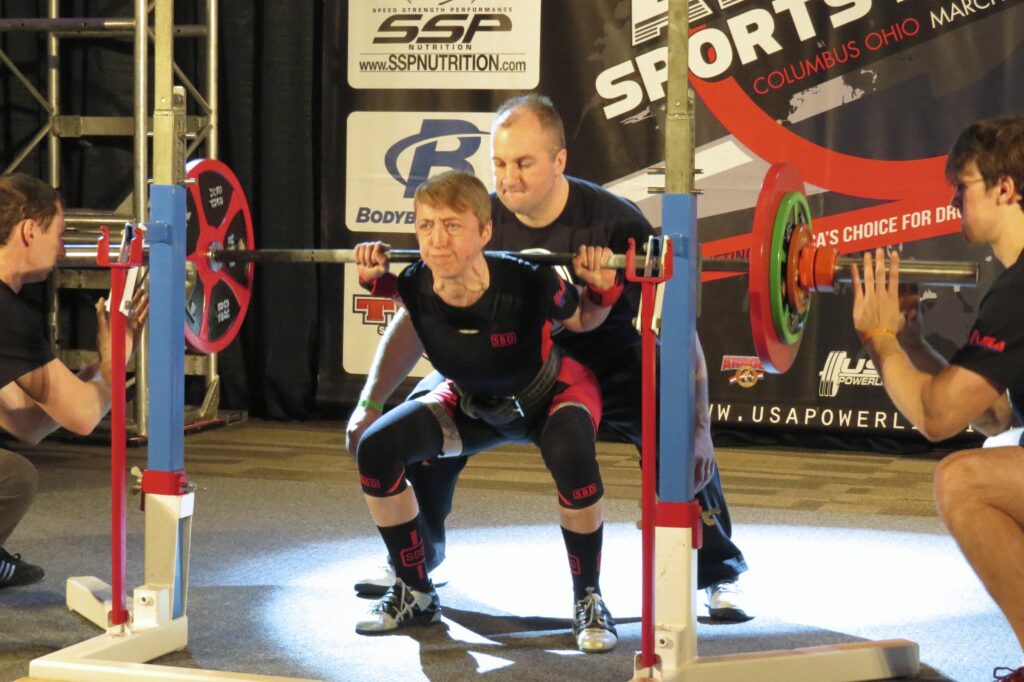
Keka: What was your first powerlifting training cycle like? Did you have a meet that you started to train for, or did you start to train, and then decided to sign up for a meet?
Joanna: When I went to South Brooklyn Weightlifting Club for the first time, the head coach there likes to do one on ones with people, just to take a look at you. At the time, his gym was very small, so it was very easy for him to do that. After my first session, he said, “There’s a meet in eight weeks, do you want to do it?”
To me, that seemed like a really ridiculous thing to say. I had my first training cycle, and it was a Mark Rippetoe Starting Strength 5×5, with pretty much nothing in the way of accessories. The addition of accessory work has been the biggest evolution in my training. It didn’t feel like I was doing any training to just go in and do twenty-five squats, twenty-five dead lifts, actually it’s not even twenty-five, it’s only five dead lifts, and about twenty bench presses, and then go home again. I was still doing some conditioning on the side.
Keka: How did your first meet compare to competing in combat sports and martial arts?
Joanna: I made all nine of my lifts, which I think for anybody starting off in powerlifting, that’s what you want to do. You shouldn’t even think about being there to be competitive, that is the one time when you really just set some goals and have fun, and make it an experience that you would want to repeat again.
One thing about powerlifting, it’s a very small sport, it’s getting bigger, but it’s a new sport. It’s very much sort of friends and family experience at a meet. It’s run on a sort of very tight knit regional level, and it is very welcoming. I think that above everything else, I just remember, even though it was my first meet, really sort of feeling a part of it, and enjoying the experience.
Keka: After that first competition, what became your goal, and how did you adjust your training to reach those goals?
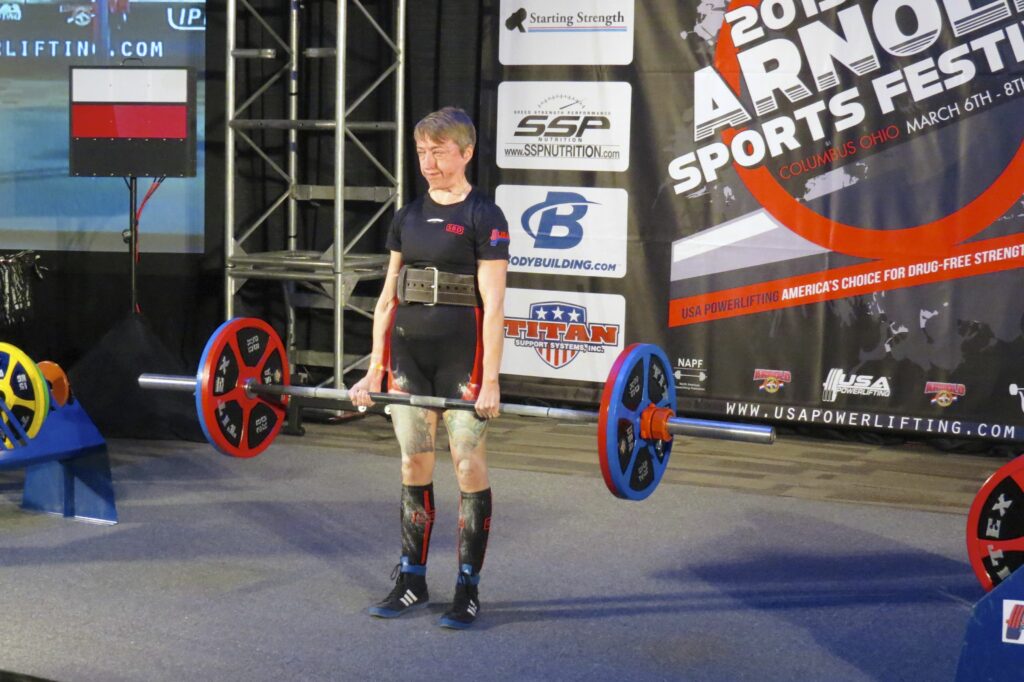
Joanna: After that my goal was to do a regional meet. You’ll do a state or a local meet, then there’s like a Northeast regional meet. From there, there’s Nationals, but Nationals was just so far distant. The American Open is in between, that’s a national meet that you don’t have to qualify for. After that, we have more time and eventually you sort of grow out of 5×5, and I had to concentrate more on absolute strength developments. At the same time, you’re still learning the lifts. I think what you find is, like any sport, you will bring a certain level of aptitude to the various aspects with you. For a woman, I always did a lot of push-ups, and a lot of bro stuff in the gym just messing around. I was actually a naturally decent bench presser compared to other women, and naturally built for deadlifting. I never trained legs. The first time I ever did a squat was in CrossFit, and maybe running.
For me, I had to spend a lot of time squatting and learning the technique of squatting, low bar squatting. It was a lot of technical development in the lifts, and then starting to develop some real strength. I’m probably not an easy person to coach, because I’m very much into working things out for myself, and experimenting. I actually went back to a lot of the body building stuff on my own, and I think that kind of helped me a lot.
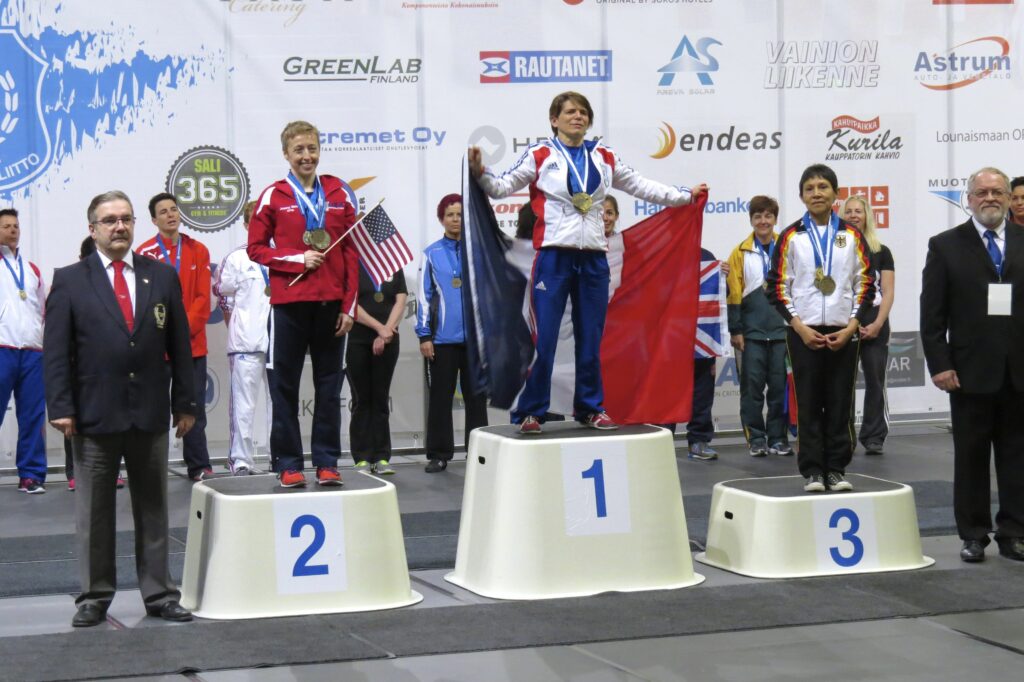
Keka: What are some of the real challenges of A) starting a sport so late, and B) starting as a master’s athlete?
Joanna: There’s a couple of things. I think the thing with a lot of masters athletes, and there I’m talking about people in their forties really. I think if you start a sport in your sixties, and you’re retired, then you might as well be in your twenties. You have an infinite amount of time to train. For me, in my late thirties, when I started this, early forties, I was at a very mature stage of my career. Even when I went to Worlds, which was a real honor, I still had to spend three years getting to that point in powerlifting, versus twenty years getting to that point in a career where not many people make it to the top, and even fewer women do. There’s far more things to balance in your life. If you have children you have to balance them.
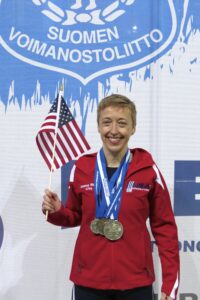
Also, I just have a very different attitude about where things should fit in in your life. The USAPL harmonized their weight classes to the IPF weight classes, which was a kilo less for me, so something that had always been difficult, (making weight) suddenly became two and a half pounds even more difficult. Thankfully I have my wife, who is everything from sport psychologist to qualified massage therapist, to personal chef, to just everything really.
Another good thing about being a Masters athlete is that, if you’re financially a little bit more secure, you can actually get people to help you.
Keka: What are you training for now?
Joanna: I’ve just done the American Open. After World’s in June, my body just needed some time out. I knew that I needed an extended period of time at a higher body weight to let my body heal, to add some more mass, and then to start thinking about powerlifting again. I’ve been doing a lot more hypertrophy type training. For the American Open I just did, I did a six weeks of powerlifting, and PR’d my deadlift and my squat. Now, I’m actually qualified for the Pan Am’s, and the NAPF’s, but unfortunately with my work schedule, that doesn’t work out for me. I chose not to do National’s in October. I’m not doing World’s this year. Actually, I’m just going to focus on a couple of smaller meets, and just have fun again with a very different type of pressure, at a very different type of environment. I’m a USAPL qualified club coach, and state level referee. Those are two things I initially thought I would hate doing while I’m still an athlete. Now I’ve kind of gotten into it, so doing some more refereeing, doing some more coaching. Eating all the foods I like to eat at the moment.
Keka: There is nothing quite like being able to eat whatever you want!
Next time, we’ll talk to Joanna about getting invited to be a part of the US Team at the 2015 World Powerlifting Championships, and her experience competing one some of her sport’s biggest stages.
Photos courtesy Emily Smith.